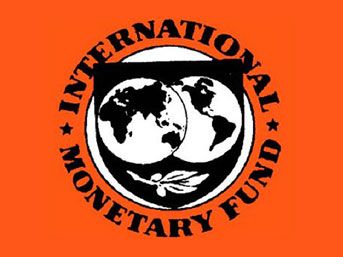Stable banks and trade only hope for European recovery
 Washington - Europe must do better in cleaning up its banking sector, should the continent have any hopes of recovering from a devastating recession, the International Monetary Fund said Friday.
Washington - Europe must do better in cleaning up its banking sector, should the continent have any hopes of recovering from a devastating recession, the International Monetary Fund said Friday.
The World Bank meanwhile said some 35 million people in Eastern Europe and Central Asia could be thrown back into poverty by the crisis, and called on on Western Europe to keep trade links alive with its struggling eastern economies.
The warnings came amid signals that some of the continent's western economies may be pulling back from the brink, while others especially in Eastern Europe are still threatened with a complete collapse of their banking sectors.
Marek Belka, head of the IMF's Europe department, said the European Central Bank still had "some room" to lower interest rates - currently at 1.5 per cent - and called on governments to coordinate in taking toxic mortgage assets out of the region's struggling banks.
For monetary or fiscal moves to make a real difference, "Europe needs to move rapidly to clean up its financial sector problems," Belka told reporters in Washington, ahead of a semi-annual gathering this weekend of the IMF's members. "It all depends on how efficiently we clean out banks."
While a recession gripping nearly all the world's economies may have started in the United States, Europe has been especially hard hit by the fallout from both the financial crisis and a collapse in global trade.
The IMF earlier this week slashed its growth forecast for the 16- member eurozone by another 1 per cent to a 4.2 per cent drop in 2009 with the bloc managing to pull back to a 0.4-per-cent decline in 2010.
Growth in emerging economies, including Central and Eastern Europe as well as Turkey, will tumble 3.7 per cent this year before rebounding slightly by 0.8 per cent in 2010. That could erase much of the strong gains seen over the last decade, when about 90 million people were pulled out of poverty.
Shigeo Katsu, the World Bank's vice president for Europe and Central Asia, said Western Europe was only beginning to realize that it, too, had a stake in the survival of Eastern Europe's banks, which are near collapse after a pull-out of investment by their parent companies in the west.
"On the west European side there's more recognition and more willingness to act," Katsu said.
Belka said unemployment, which has so far fallen less rapidly in Europe than in the United States, should be a key worry for governments. Germany, the region's largest economy but also one of the worst hit by the crisis, has to make sure demand within its borders stays strong to make up for a collapse in exports.
"It's very important that the measures taken by Germany (and others) are geared towards maintaining a high level of employment," Belka said. "This keeps the consumer's confidence up."
Germany's business confidence hit a five-month high in April, the Munich-based Ifo economic research institute said Friday, fuelling hopes of a recovery. But Belka said it was too early to speak of a "turning point" on the continent. (dpa)